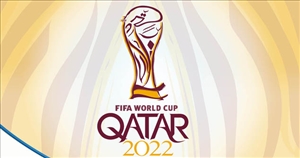December 2 – In a new low for FIFA and president Gianni Infantino’s administration, FIFA have ignored a key recommendation by its own subcommittee on human rights and social responsibility to compensate migrant workers in Qatar.
Under cover of darkness, the global governing body published the long-awaited Qatar report, which addressed the question of legacy and remedies for migrant workers whose labour and suffering were key to Qatar’s transformation as World Cup host.
The report by FIFA’s subcommittee on human rights and social responsibility suggests that FIFA has “a responsibility” to compensate migrant workers. In December 2023, Human Level, the consultancy firm hired by FIFA, submitted its report to the subcommittee, but FIFA waited almost a year to release the report and then did so without announcing it.
In the study, Human Level writes: “The study underscores that meaningful, timely, and effective remedy for World Cup-related impacts on workers is achievable. FIFA’s role, in collaboration with other stakeholders, is crucial in ensuring it takes place. Leveraging its reputation and influence, FIFA can bring others along to contribute to remedy, and ensure that a strong positive legacy of the first Arab World Cup also benefits those who contributed the most to its delivery.”
While the Human Level study lists some of the positives that FIFA have achieved, it’s a damaging read for the world federation. FIFA’s own subcommittee wrote: “There are workers who have contributed to the resounding success of the World Cup… who have not yet benefited from any, or any adequate remediation.”
But FIFA and its administration have dismissed those findings. Last Wednesday, FIFA revealed plans for the $50 million 2022 World Cup legacy fund. The media release announcing the legacy fund did not refer to ‘migrant workers’ once. The fund will instead focus on development partnerships with the World Health Organisation, World Trade Organisation and the UN refugee agency, UNHCR.
It’s a shocking disregard for the suffering, harm, injury and loss thousands of migrant workers, but FIFA believes they have no legal obligation to compensate migrant workers, even if the subcommittee advised FIFA “to dedicate the World Cup 2022 legacy fund in full or in part to further strengthen the competition’s legacy for migrant workers”.
A FIFA spokesperson said that “the study did not specifically constitute a legal assessment of the obligation to remedy”.
In a statement, FIFA said: “All reports and recommendations were considered during a comprehensive review by the FIFA administration and relevant bodies. While all recommendations could not be met, practical and impactful elements were retained. It should be noted that the study did not specifically constitute a legal assessment of the obligation to remedy.”
“The creation of the FIFA World Cup 2022 Legacy Fund was unanimously endorsed by the FIFA Council following a proposal made by the FIFA Governance, Audit and Compliance Committee. A Workers’ Support and Insurance Fund was established in Qatar in 2018, and FIFA believes the new Legacy Fund, endorsed by recognised international agencies, is a pragmatic and transparent initiative that will encompass social programmes to help people most in need across the world.”
But FIFA’s position was met with an enraged backlash.
“FIFA must now implement the recommendations of the report, ensuring that the commitment to a human rights-based legacy is honoured,” said Norwegian Football Federation president Lise Klaveness. “The migrant workers who contributed to the Qatar World Cup need to be justly compensated.”
Two years ago, Qatar became the first country in the Middle East to stage the World Cup, but the plight of migrant workers has cast a long shadow over the tournament that has extended from before the finals began, to during and now following the finals. Their suffering and deaths in the buildup to the tournament were documented at great length by Western media reports and rights groups, but Qatar always claimed that the paper abolition of the kafala system greatly improved the lives of migrant workers.
FairSquare’s co-director James Lynch said: “FIFA has plumbed new depths this week. Its $50 million Qatar 2022 ‘legacy fund’ offers nothing for the workers who suffered building the tournament, completely ignoring the advice of its own expert human rights report.”
Steve Cockburn, Amnesty International’s Head of Labour Rights and Sport, added: “It is no mystery why FIFA has sought to keep this independent report hidden for so long – it clearly concludes that the organisation has a responsibility to ensure remedy including compensation to hundreds of thousands of workers who suffered abuses connected to the 2022 World Cup. It validates what human rights organisations, trade unions, fans, and now even FIFA’s own human rights sub-committee have been saying – it is time for FIFA to pay up.”
But FIFA, it seems, have no intention of doing so. Infantino previously said at the Milken Conference that migrant workers gain pride from hard work. With the establishment of the legacy fund that does not benefit migrant workers and the secretive publication of the Qatar report, FIFA have signalled they are no longer interested in compensating workers.
The organisation’s pivot to Saudi Arabia, with a flawed human rights policy as part of the country’s bid for the 2034 World Cup, appears to be further evidence that FIFA no longer care.
Klaveness warned: “While the Legacy Fund is a welcome and valuable contribution to the World Cup’s legacy, it is essential to recognise the distinction between legacy and remedy. The Fund is not a substitute for remedy or compensation for human rights violations.”
Contact the writer of this story at moc.l1743732654labto1743732654ofdlr1743732654owedi1743732654sni@i1743732654tnuk.1743732654ardni1743732654mas1743732654

